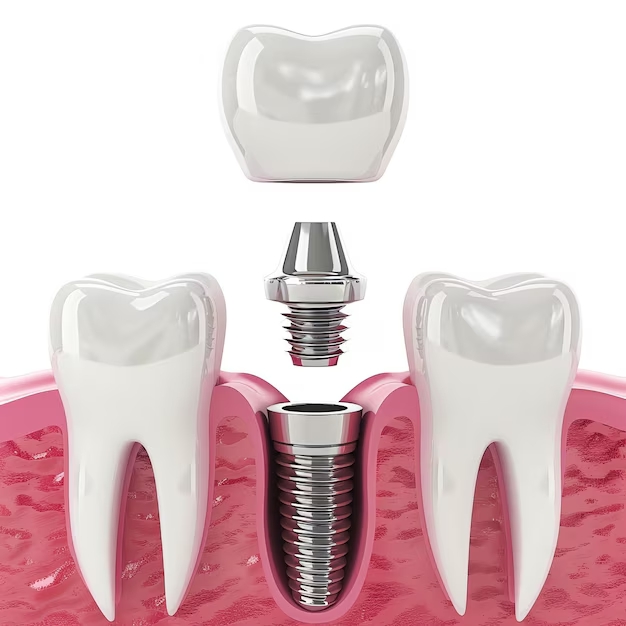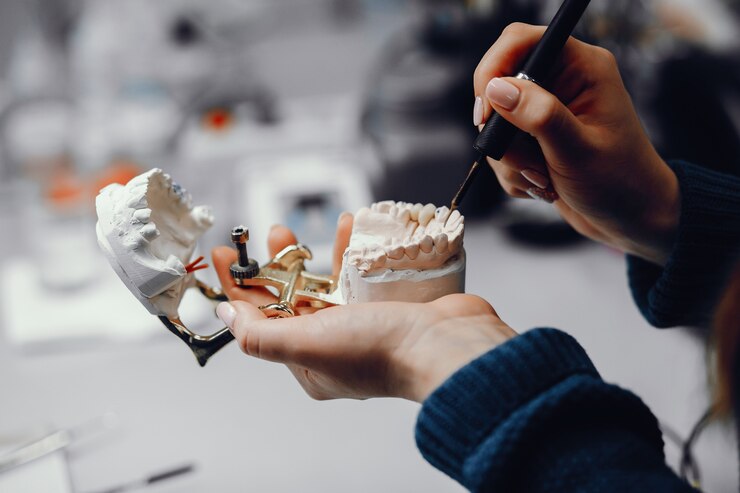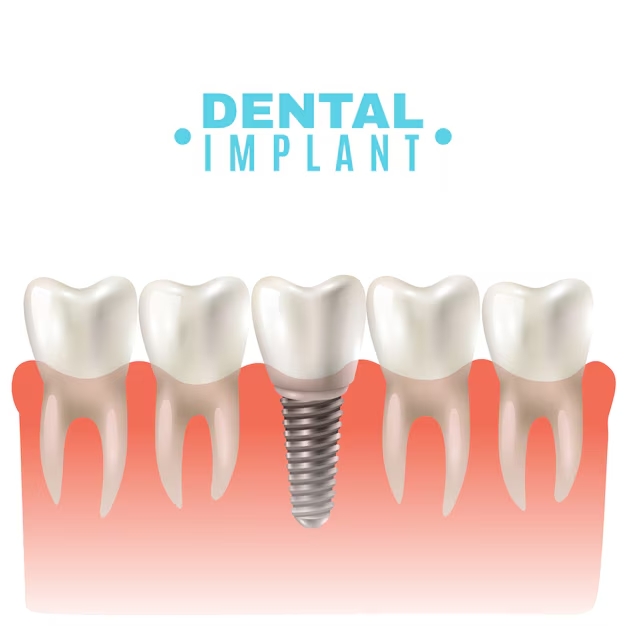The most effective way to replace a missing adult tooth or multiple teeth is dental implants. It is a small medical procedure in which the implantolog
All You Need to Know about Dental Implant Risks and Complications
The most effective way to replace a missing adult tooth or multiple teeth is dental implants.
It is a small medical procedure in which the implantologist puts a titanium artificial root
inside the jawbone where the tooth was missing. Thereafter, the implantologist adds an
artificial tooth either cemented or screw retained to the titanium post to make for a natural
smile. Dental implants help towards maintaining a healthy balance to function naturally and
chewing normally.
Dental Implants perform better than dental bridges and dentures and the longevity is 15-20
years+ in a perfectly healthy mouth. In general, Implants are more comfortable and stronger,
in comparison to removable teeth. However, when considering getting dental implants this
involves multiple appointments, healing time of 3-6 months and can come with the risk of
developing complications. So, how will you detect bad dental implants? Let’s find out!
What are the Signs of Dental Implant Failure?
Dental implants are generally a reliable solution for missing teeth, but on rare occasions,
complications can arise. Can dental implants make you sick? Here are the key signs of
dental implant failure:
● Severe Pain and Discomfort:
Persistent or worsening pain, especially after the healing period, may indicate issues such as infection or implant rejection. While some discomfort is normal immediately after the procedure, ongoing severe pain is a red flag.
● Gum Recession around the Implant:
If the gum tissue around the implant begins to recede, it can expose the implant’s metal components. This can make the implant more vulnerable to bacterial infection, increasing the risk of implant failure.
● Difficulty While Chewing and Biting:
If you experience pain or discomfort while chewing or biting, it may indicate that the implant isn’t functioning properly or has become misaligned, making it difficult to perform everyday tasks like eating.
● Shifting and Loose Implant:
A dental implant should remain stable once it has integrated with the jawbone. If the implant feels loose or shifts, it could mean the implant hasn’t properly fused with the bone, a condition known as osseointegration failure.
● Swollen Gums:
Swelling, redness, or inflammation in the gums around the implant site could indicate infection, called peri-implantitis, or other underlying issues. Swelling should be monitored closely and reported to your implantologist if it persists.
● Implant Micro-Movements:
If the implant is moving even slightly, especially after the initial healing period, it could be a sign that it hasn’t properly fused with the bone, leading to implant failure.
● Sudden Allergic Reactions:
Rarely, some patients may have an allergic reaction to the titanium used in implants. Signs of an allergic reaction include swelling, loss of taste, or tingling sensations. This requires immediate medical attention. If any of these symptoms occur, it’s essential to contact your implantologist to address the
issue promptly. Early detection and treatment of dental implant complications can
help prevent total implant failure.
What Are the Complications of Dental Implants?
Side effects from dental implants can arise because of the following complications:
● Failure of Osseointegration:
This is said to occur when the bone grows around the implant. If it doesn’t happen, the implant will not be stable enough to hold the crown, which leads to dental implant failure. If a dental implant fails, the implant will either come out by itself or needs to be removed. In the event of a dental implant failure,
you can talk to your implantologist to decide whether you need a replacement or need to consider a different option.
● Improper Implant Placement:
Dental implants are a very intricate and skilled treatment. Implantologists are required to follow strict angles and positionings for implants to integrate successfully. Rarely, an error in placing the implant with respect to angle or location of the implant can occur and result in complications.
The implant may fail to properly attach to the bone, become loose or be too close to the adjacent teeth causing discomfort. In such a situation, the implant needs to be replaced or removed.
What are the Risks of Dental Implants?
Below are some of the common dental implant risks:
● Damage to the Sinus:
One of the dental implant side effects is sinus damage. Your upper jaw lies just below the sinus. Implants to replace your top teeth can potentially enter the sinus, resulting in infection or pain. This is why CBCT scans are essential to allow the implantologist to review the position of the sinus, nerves and angle of other teeth into the jawbone.
● Infection:
Similar to oral surgery, the dental implant procedure comes with a risk of infection. It is important to follow your implantologist’s instructions on how to look after the treated area as it heals (these are provided before and after your implant surgery). If you experience swelling and pain, or find fluid coming out of the treated site, see your implantologist without delay.
● Damage to the Nerves:
Like any surgery there are risks associated as we are working near other nerves, sinuses and facial muscles. Implant surgery can sometimes result in nerve damage although a rare occurrence. Before the procedure, the implantologist takes x-rays and an essential CBCT (cone beam computed tomography) scan to locate the essential nerves, sinus locations and angles of other teeth in the mouth. Nerve damage may have lasting consequences; hence, it is advisable to discuss the dental implants risks with your implantologist beforehand.
In rare cases implants can have an impact on the teeth around them. This is usually if the adjacent teeth already have issues like root damage or decay present, an implant procedure may worsen the situation. A general implantologist usually examines the whole mouth and teeth first and then refers to the implantologist for further investigation of the teeth/tooth in question and address any potential problems before going ahead with the implant procedure.
Before signing up for dental implants, it’s essential to discuss all potential risks and side effects with the implantologist at One Two Three Dental. Be sure to mention any pre-existing health conditions or medications you’re taking so they can determine if dental implants are the right option for you.











